2011: Retiring faculty
Nine professors — in art, counseling, divinity, economics, history, religion, journalism, classical languages and East Asian languages — are retiring this year, after leaving an indelible mark on generations of students dating back to the 1970s.
Fred L. Horton Jr.
John Thomas Albritton Professor of Religion
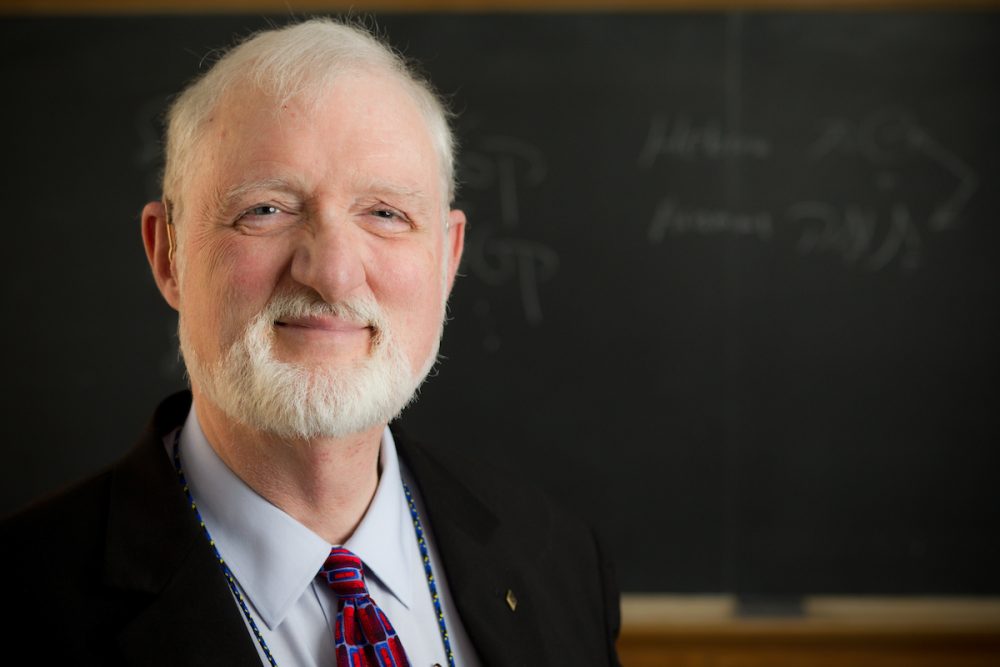
During his 41 years on the faculty, Fred Horton held many roles in the community and at Wake Forest: Episcopal priest, amateur-radio operator, biblical scholar and teacher, instructor of Hebrew and Aramaic, and mentor.
Megan Moore (MA ’97) credits Horton with encouraging her to pursue a Ph.D. in religion after earning a masters in religion. “That’s what makes Fred special — his love for people and unwavering faith in what they can accomplish,” said Moore, who now teaches part-time in the Wake Forest religion department.
Horton graduated from Union Theological Seminary and received his Ph.D. in biblical studies from Duke University before joining the Wake Forest faculty in 1970. He directed the religion department’s graduate program in the mid-1970s and for much of the 1980s, and he helped start a new program with the School of Pastoral Care at N.C. Baptist Hospital, which leads to a masters in pastoral counseling. He led numerous expeditions and excavations at historic sites in Israel; in 1995, his team discovered the foundations of King Herod’s Temple to Roma and Augustus in the town of Caesarea.
Horton has a long list of plans for the future: travel, continue his church ministry, teach English as a second language, write a book about forgiveness, and spend more time on his amateur-radio hobby. “I’ll miss the intellectual energy of my students and the inexhaustible knowledge of my faculty colleagues,” he said. “I’ll miss being within a community where study and learning are the most important things in the world.”
Robert W. Ulery Jr.
Professor of Classical Languages
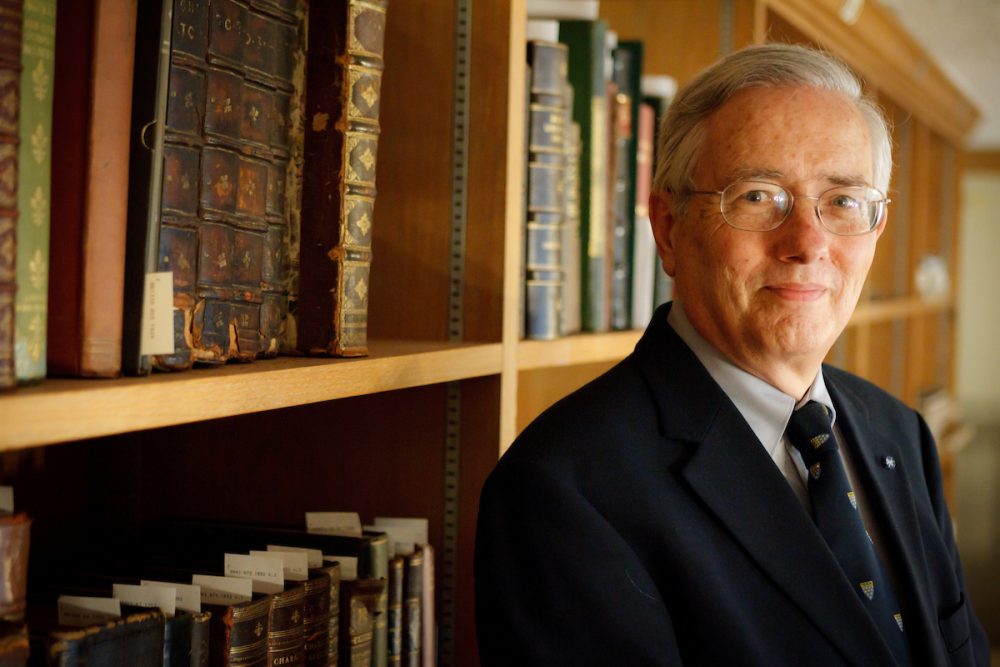
During his 40 years in the classroom, Rob Ulery brought Latin literature and language, and Greek and Roman comedy alive. Outside the classroom, he was the organist for Thursday morning Chapel services in Davis Chapel for many years, and a member of the Yale Alumni Chorus and the Piedmont Chamber Singers.
“For 40 years, Rob has been one of the rocks on which the classics department was firmly settled,” said his colleague, associate professor James Powell. “I will particularly remember Rob for his passionate commitment to the Latin language, to the teaching of Latin, and to all things having to do with the classical Roman world.”
A native of Indiana, Ulery joined the faculty in 1971 after earning his Ph.D. from Yale University. He took groups of students to Casa Artom in Venice in 1975, 1987 and 1996. He is well known for two principal works: articles on the historians Tacitus and Sallust for the “Catalogue for Translations and Commentaries” and an edition of Pietro Bembo’s neo-Latin work, “A History of Venice.”
He is completing a project with a colleague in Rome on an English manuscript in Genoa from the 1630s about Tacitus and Roman emperor Tiberius. “I will miss teaching Latin to students who loved it, or were surprised by it, or (even) hated it,” he said, “in a college that takes it seriously and a department of kindred souls.”
Donald E. Frey
Professor of Economics
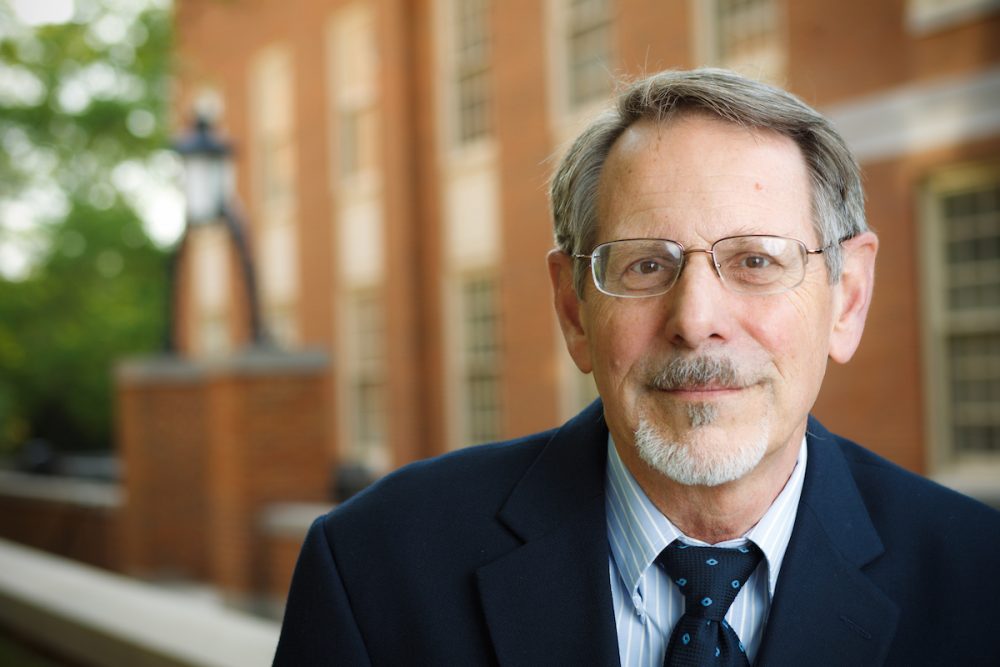
For nearly 40 years, Don Frey offered no shortcuts in his macro-economics theory, labor economics, urban economics, or morals and markets courses, says his longtime colleague John Moorhouse.
Frey was a “fine and challenging teacher” and a “stalwart faculty member and colleague,” who was always willing to supervise senior honors projects or serve on faculty committees, Moorhouse said. “It has always been clear to his colleagues that Don cares about his discipline, the department, the University, and more generally the state of higher education,” said Moorhouse, who is now retired.
A native of Mt. Vernon, N.Y., Frey received a master’s of divinity degree from Yale University and his Ph.D. from Princeton University before joining the faculty in 1972. He was a staff associate in employment policy at the Brookings Institution in the late 1970s. He was especially interested in economic morality, and in 2009 wrote a book, “America’s Economic Moralists: A History of Rival Ethics and Economics.” For nearly two decades, he directed Wake Forest’s minor in urban studies.
“Teaching always challenged me to reduce complex, technical theories to something that was understandable (at least with a little effort) and connect them to the real world,” said Frey, who plans to spend more time volunteering in the community. “I liked it when students could get beyond struggling with individual concepts (after all, economics is difficult and abstract) and occasionally get a glimpse of the big picture — see the forest instead of just the trees.”
Margaret S. Smith
Harold W. Tribble Professor of Art
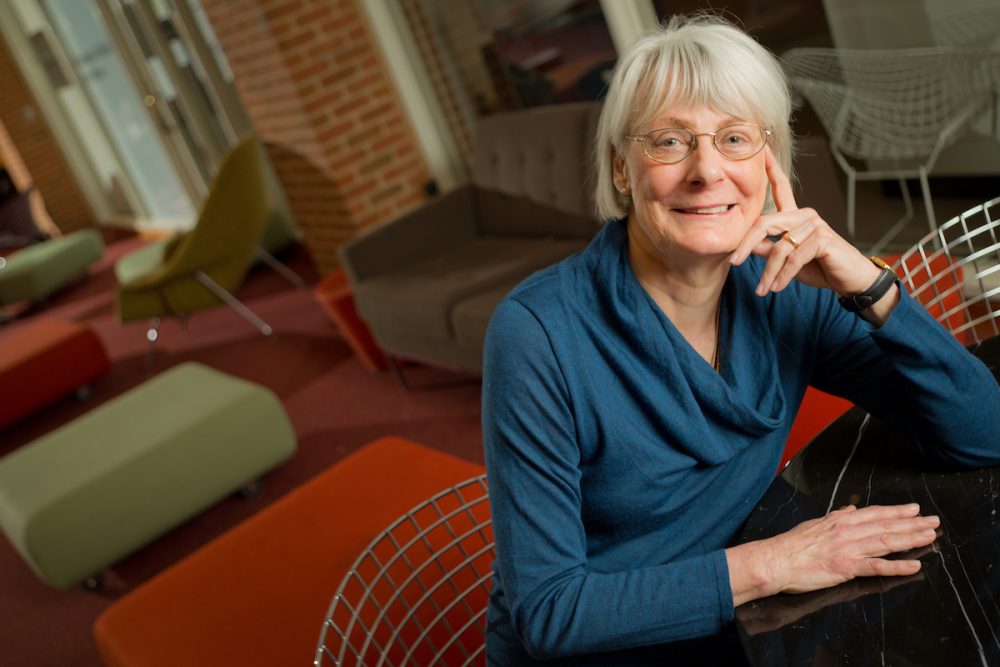
From architectural history to women’s history to Wake Forest’s history, Peggy Smith left her mark in numerous areas the last 32 years. As only the third faculty member in the still-new art department when she was hired in 1979, she served as chair for much of the department’s formative years and helped shape its offerings and faculty.
“She built the art department into a strong department,” said Provost Emeritus Edwin G. Wilson (’43). “Not only has she been a very important member of the Wake Forest community, she also reached out to the larger community.”
Smith received her Ph.D. from Brown University and taught at Boston University before joining the Wake Forest faculty to teach modern and American architecture. During the Sesquicentennial celebration in 1984, she designed an exhibit on Wake Forest’s architecture history on both the old and new campuses, “The Building of Wake Forest: The first 150 Years.” She participated in two master plans for the University, in 1985 and 1992, and was an advocate for Reynolda House Museum of America Art.
As a pioneer of women’s history, she helped start Wake Forest’s Women’s and Gender Studies Program and coordinated the North Carolina Women’s History Project for the N.C. Museum of History in the 1990s. She was the co-author (with Emily Herring Wilson) of “North Carolina Women: Making History.” She is completing work on “American Ski Resort: Architecture, Experience and Style,” scheduled to be published in 2012.
“I will miss the students because they are fun, I like them, and they give me an entree to constantly evolving generations of young people,” said Smith, who worked with her last group of students on a Habitat for Humanity house as part of her “American Dream” first-year seminar.
Farewell to Peggy Smith, from the Wake Forest Magazine.
More on the American Dream seminar.
Sarah L. Watts
Professor of History
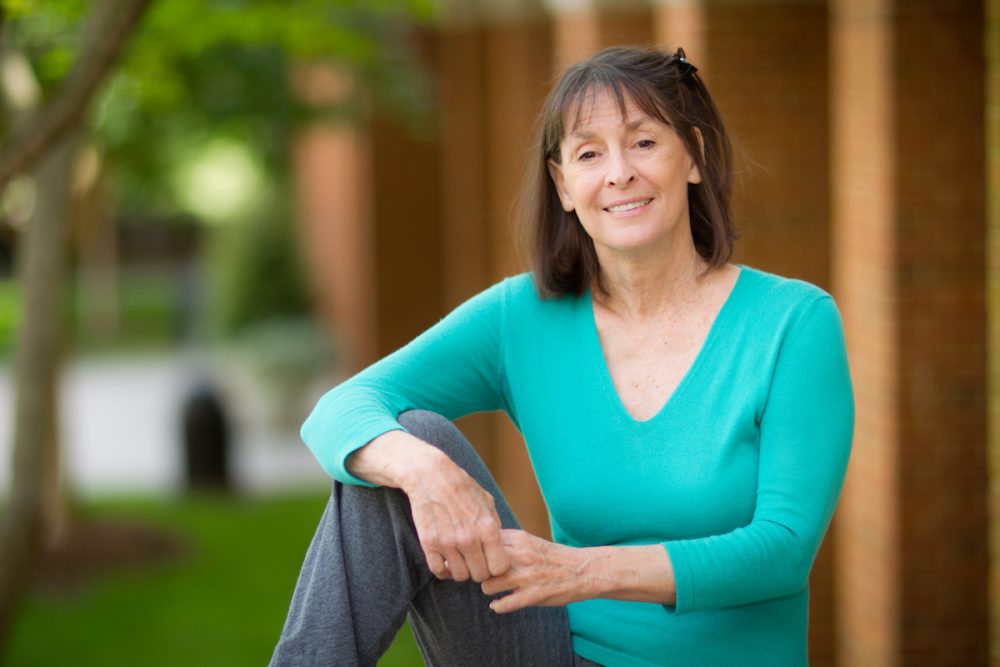
Sarah Watts, who joined the faculty in 1987, was the first tenured woman and first female full professor in the history department. She was also the first faculty member to receive a John Simon Guggenheim Memorial Foundation Fellowship.
Simone Caron, chair and associate professor of history, said Watts has exemplified the teacher-scholar ideal. “For 24 years, Sarah exemplified a selfless, genuine dedication to students, especially to those arriving at Wake Forest without great advantage and in need of extra mentoring. She influenced generations of students and faculty, shaping the minds of numerous scholars in American, economic and world history.”
A native of North Carolina, Watts received her master’s in European history and a Ph.D. in U.S. history, both from the University of Oklahoma, and taught at Memphis State University prior to coming to Wake Forest. She is a talented painter, whose works have appeared in local art galleries, and an avid biker, who has logged thousands of miles along roads and mountains in North Carolina, Colorado and South America.
Since receiving the Guggenheim fellowship in 2008 and stepping down from full-time teaching, she has been researching satirical political cartoons produced between 1897 and 1910 by German Expressionist Lyonel Feininger for a book. She is also the author of “Rough Rider in the White House: Theodore Roosevelt and the Politics of Desire.”
“I’ll miss what I most enjoyed, which is the intellectual energy students brought to class,” she said. “I appreciated students’ verve, wit, openness, intellectual honesty and good cheer.”
Patrick E. Moran
Associate Professor of Chinese
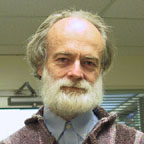
Pat Moran, who joined the faculty in 1989, guided what was then the program in East Asian languages and cultures before it became its own department.
“He has been a committed educator of Chinese language, philosophy and culture,” said Yaohua Shi, chair of East Asian languages and culture and associate professor of Chinese. “His curiosity is boundless, from physics, an earlier passion before he switched to Chinese, to entomology, to the discovery of musical equal temperament in China, not to mention Chinese philology and philosophy.”
A native of Nebraska City, Neb., Moran earned his undergraduate degree in philosophy and a master’s in Chinese from Stanford University and a Ph.D. in Chinese from the University of Pennsylvania. He taught Chinese at a number of universities before joining the Wake Forest faculty.
Wayne E. King
Associate Professor of Journalism
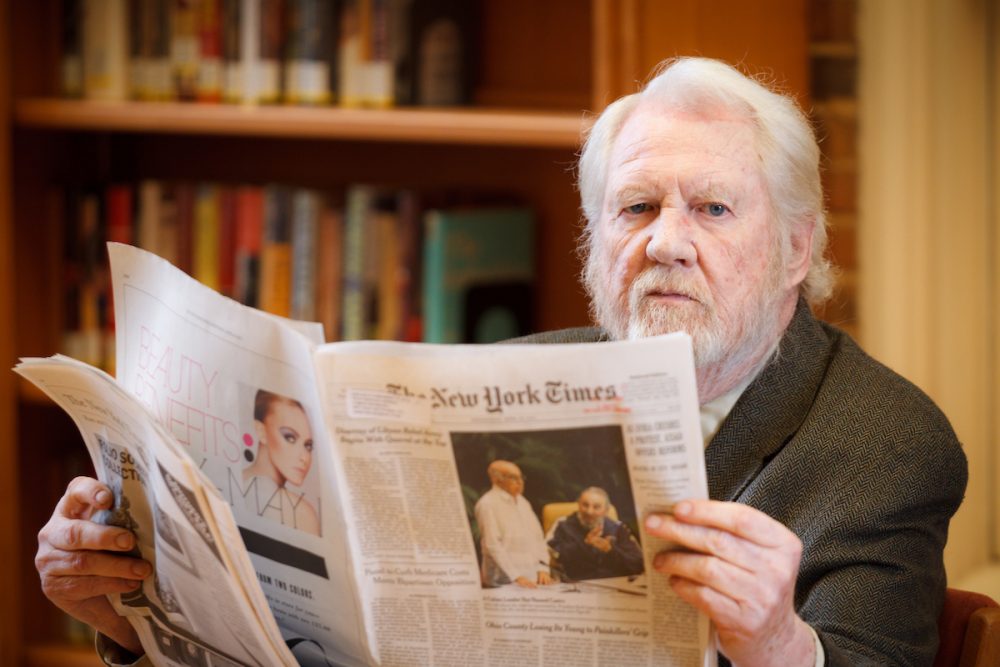
Wayne King had a distinguished career as a journalist at The Detroit Free Press — where he shared in a Pulitzer Prize for coverage of the 1967 Detroit riots — and The New York Times — where he was twice nominated for the Pulitzer — before coming to Wake Forest.
A native of North Carolina, King graduated from the University of North Carolina at Chapel Hill and started his journalism career at newspapers in Greensboro and Durham, N.C. He worked on Lyndon Johnson’s presidential campaign and later covered the presidential campaigns of Jimmy Carter, Ronald Reagan, Jesse Jackson and Ted Kennedy.
After joining the English department faculty in 1992 to direct the journalism program, he served as advisor to the Old Gold & Black student newspaper and helped start the minor in journalism. Caitlin Kenney (’08), who was editor-in-chief of the OG&B in 2007, said King gave student journalists the freedom to make their own decisions — and mistakes — but was always available to offer advice.
“I think he strongly believed that student journalists needed that experience of a ‘trial by fire’ and he was right,” said Kenney, who is now an assistant editor at Abrams, a book publisher in New York City. “His teaching style was absolutely spot on for the skills he was trying to teach us: ask questions, be aware, think for yourself. He taught us to think like reporters.”
John P. Anderson (MAEd ’00)
Professor of Counseling
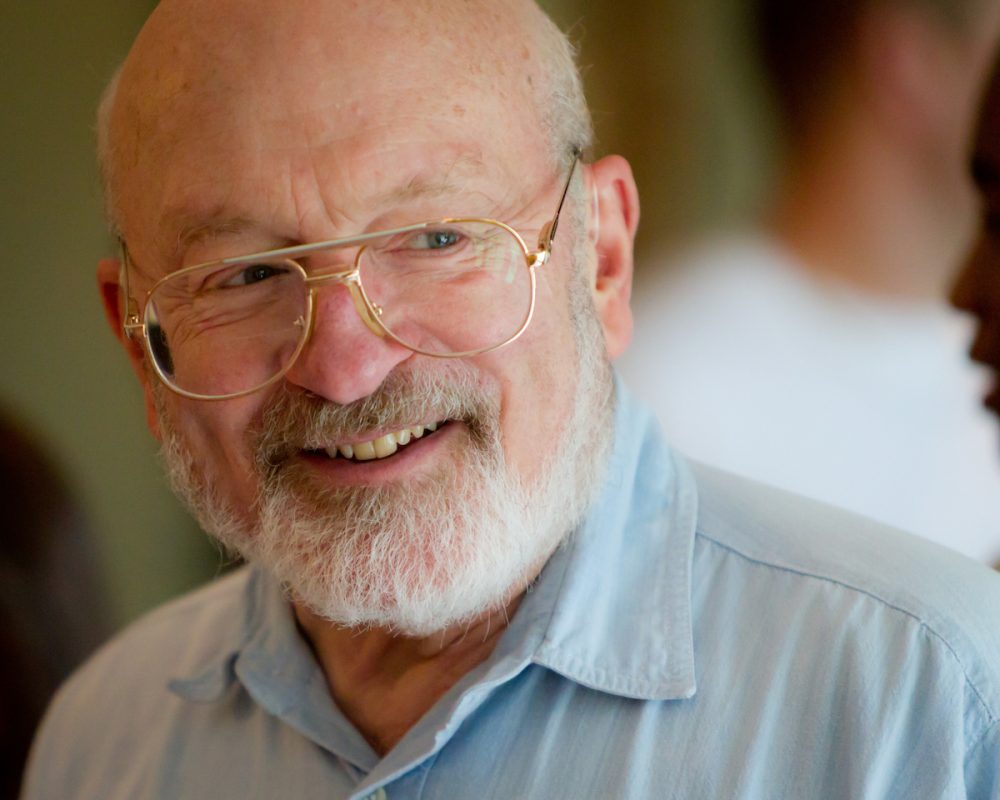
John Anderson began a second career teaching in the counseling department after retiring as vice president for finance and administration in 2006. For years before that, he had taught or co-taught a group counseling class every spring. He earned a master’s in counseling from Wake Forest in 2000.
“As a professor, John had a relaxed and humorous way of presenting material to students which was much appreciated and admired,” said Professor and Chair of Counseling Sam Gladding (’67, MAEd ’71). “Counseling students and colleagues delighted in him as a professor and a person.”
A mathematics and engineering graduate from Georgia Tech, Anderson earned an MBA from the University of Alabama-Birmingham. He was a professor of engineering and mathematics and director of financial planning and long-range planning at UAB before coming to Wake Forest in 1984. During his two decades as the University’s chief planner, he oversaw a major expansion of the Wake Forest campus — including the Benson University Center, Olin Physical Laboratory, Worrell Professional Center, and Greene and Kirby halls.
When he stepped down from his administrative role, Anderson said he was looking forward to more contact with students in his new role. “The thing I have always liked best is being allowed to work with Wake Forest students,” he said.
More on John Anderson (Wake Forest Magazine, page 12).
Douglass M. Bailey (’60)
Assistant Professor of Urban Ministry, School of Divinity
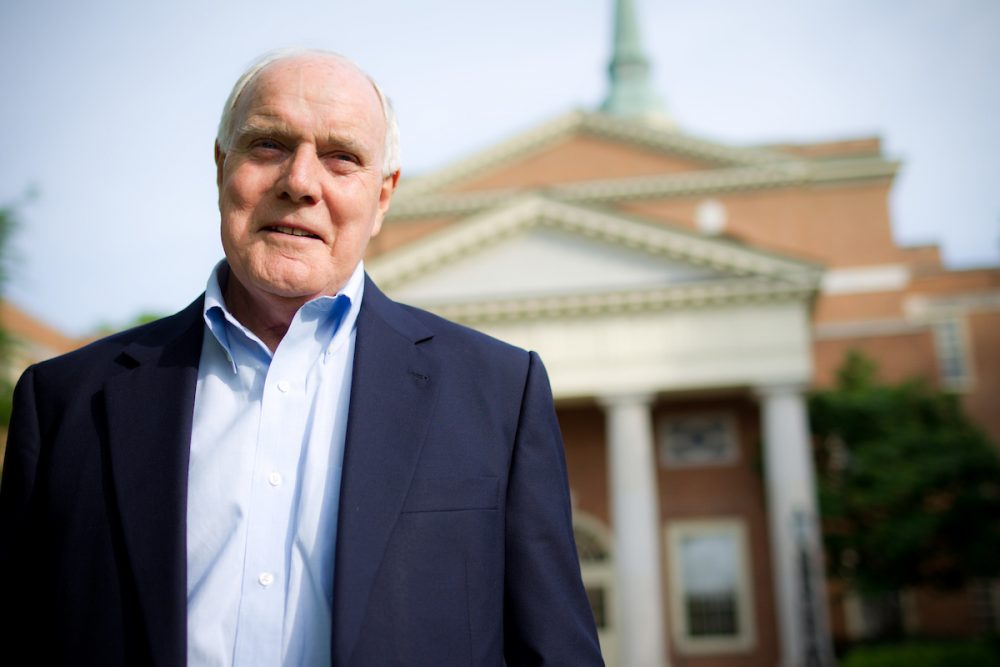
Doug Bailey was a prominent church and community leader in Memphis, Tenn., when he returned to his alma mater and its new divinity school in 2002. As the longtime rector of Calvary Episcopal Church at the time, he had revitalized the declining downtown parish church by emphasizing outreach to the community.
When he joined the divinity school faculty, he brought his Center for Urban Ministry with him to train the next generation of religious leaders to address homelessness, poverty, addictions and social justice. “Doug carried a new divinity school into churches, schools and other networks that shaped our identity and reputation early in our history,” said Bill Leonard, founding dean of the divinity school. “He is widely recognized as one of the foremost authorities on urban ministry and community organizing in the U.S.”
A native of Clarksburg, West Virginia, Bailey played basketball for Coach Bones McKinney at Wake Forest. He earned his master’s in divinity degree from Virginia Theological Seminary and his doctor of divinity from Rhodes College in Memphis. He received Wake Forest’s Distinguished Alumni Award in 2001.
“One of my joys has been the opportunity to continue my vocation and practice of urban ministry by teaching it in learning laboratory fashion in this good divinity school with its emphasis on social justice,” Bailey said. “Another joy has to be the very rich and heartwarming experience of teaching and learning with great students, whether it be in the classroom, in chapel, or in the remarkable Immersion Pilgrimages to New York City.”
— By Kerry M. King (’85), Office of Communications and External Relations
- 2011: Main Story
- 2011: Speaker Indra K. Nooyi
- 2011: President Hatch
- 2011: Retiring faculty
- 2011: Senior Profiles
- 2011: Commencement Photos
- 2011: Video: Ceremony
- 2011: Video: Interviews
- 2011: Video: Time lapse
- 2011: Video: Commencement Slideshow
- 2011: Video: Baccalaureate
- 2011: Video: Baccalaureate Slideshow
- 2011 Baccalaureate Photos
- 2011: By the numbers
- 2011: Programs
